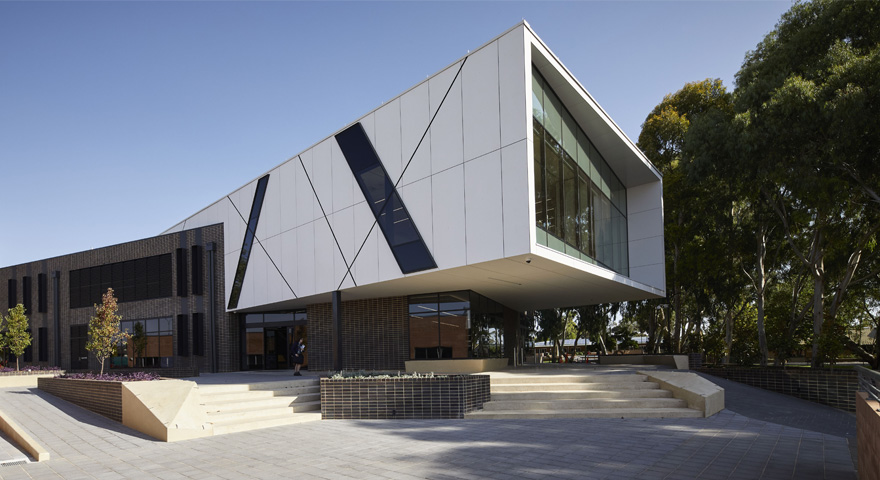

Trinity College
Konica Minolta provides 3D Printing for innovative and creative learning at Trinity College.
Established in 1984, Trinity College is a multi-school co-educational college of excellence, with 3,700 students and 350 teachers across preschool to Year 12.
It encompasses five school campuses across junior, middle and senior levels, and has been recognised nationally for excellence in the design of a student learning environment.
Trinity has achieved three robotics world championships and one Guinness World record, and provides students with extensive curricular and co-curricular programs.
In late 2019, it opened the Trinity Innovation & Creativity School (TICS) to provide students with knowledge that reflects the increasing dependence on technology in the workplace.
The Challenge
- 3D printers required as part of the new Innovation & Creativity School
- Machines needed to be reliable with minimum downtime
- A larger machine was needed that could withstand print jobs from the entire college.
Trinity College had hobbyist 3D printing machines; however, these machines didn’t cope with high volumes and weren’t reliable, leading to downtime. 3D modelling had already been introduced into some curriculum areas, and the opening of the new Trinity Innovation & Creativity School provided an opportunity to update the 3D printers.
The College investigated larger, more durable and robust machines to let students unleash their innovation and creativity. Trinity needed 3D printers that could offer various methods of printing, provided by a vendor that not only met education requirements but provided students with industry-standard experiences.
The Solution
- 3D Systems ProJet 2500 Plus
- Markforged Onyx One
Trinity College had an existing relationship with Konica Minolta and approached the team for recommendations. The school chose the 3D Systems ProJet 2500 Plus and the Markforged Onyx One. These printers offered a significant improvement in uptime and maintenance requirements compared with the hobbyist machines they replaced.
The ProJet 2500 Plus offers printing speed, accuracy and a high-resolution finish. The printer can complete all class members’ projects overnight, so students can see their 3D-printed model the next day. The Markforged Onyx One provides an impressive individual finish, which is leagues ahead of the hobbyist machines, and is invaluable for creating prototypes.
Although neither printer is commonly found in schools, the Trinity team preferred them because the technology was relevant across various industries and could provide students with real-life experience that would be useful in their future careers.
Andrew Norwood, director of digital learning and head of digital technologies, Trinity College, said, “Konica Minolta approached Trinity College with the kind of technology that students will encounter in various industries, like manufacturing and medical, which we can use to prepare students for the future. Konica Minolta has also provided great resources, like presentations and events, that show real-world use of 3D printing across industries, which provides great insights for students and in developing curriculum lessons.”
Customer Benefits
- High-resolution, accurate models printed at a high speed
- Easy-to-use software for teachers and students
- Students can develop prototypes and take experiments to the next design level
- Students gain experience with industry-standard machines and practices
Both 3D printers were installed in the TICS to provide a centralised learning environment shared by the whole college. New lessons and a digital technology curriculum were developed, including an immersive innovation week for all Year 7 and 8 cohorts to experience the TICS. During this week, students learn about digital technology and 3D modelling, which will help them in all the different subjects that 3D modelling is now being embedded in.
The College has implemented a series of science, technology, engineering and mathematics (STEM) projects. For example, a spinning top project introduced Year 7 students to Tinkercad and required them to scientifically investigate ways to make the top spin longer. In a senior extension of this project, students are required to use physics to create a device that will spin the top most effectively. The College also runs a mathematics lesson where students develop and print chess pieces, working out the volume of each piece.
The 3D printers have also helped develop robotic parts. One student used 3D printing to create a new part for a line sensor on a robot, which had been continually falling off, incurring costs for the college to replace it each time. 3D printing provides a fast, easy and cost-effective solution to maintaining the robot.
Andrew Norwood said, “The new 3D printers give students the opportunity to put into practice anything they can imagine. It doesn’t require a large workshop; it just requires their imagination and some 3D modelling skills.”
The 3D printers have given the College scope for future innovation. The College intends to install more of these printers throughout each school, which will encourage more students and teachers to think creatively and upskill.
The capability of the printers, combined with curriculum ideas and support from Konica Minolta, has further cemented Trinity College’s position as a future-focused, innovation-led place of education for tomorrow’s industry leaders.
How we work with you
Our aim is to understand your needs in order to provide outstanding service and cutting-edge technology. Whether it’s networking new office equipment or providing healthcare solutions at home, we’re here to help.
Step 1
Discovery

Step 2
Site Survey

Step 3
Presentation

Step 4
Installation & Configuration

Step 5
Training

Step 6
Regular Review Visit

We will work with you to review the effectiveness of your technology and keep you up to date.
